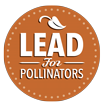By guest blog writer, Debbie Seib, Beekeeper; The Beekeepers of Indiana, Treasurer;; Heartland Apicultural Society, Treasurer; American Beekeeping Federation, Board of Director
Attend a beginning beekeeping class and one of the first things you’re told is find a mentor and join a local bee club. At your local club meeting, someone asks if you’re a member of the state association and you think “Should I be”? Next you hear about a regional conference coming up and then you get a Facebook or Twitter blast about something the national association is doing. By now your head is swimming and your pocket book, unlike COVID weight, is getting lighter and lighter.
You question, why do I need to join anything besides my local club? So let’s take a look at the different organizations, what the benefits are from each one and then you’ll have the information you need to make an informed decision.
Starting with your local club which has monthly meetings. Most local clubs have less structure, they may or may not elect officers. Many have a core group that arranges and manages the club meetings, speakers and event days. Local clubs have no dues, minimal dues or a donation jar to cover the cost of the meeting location and any beverages or snacks they serve. Depending on the size of your state and how many local clubs there are, they will encompass a local club for a single county, multiple counties and for large cities may have multiple local clubs per city. They usually have a mentor program so your mentor will be someone close to you. They hold hands-on clinic like field days, demonstrating how to make candy boards, catch a swarm or maybe how to assemble equipment. Some local clubs will bring in speakers from your state who specialize in a specific topic. Local information can be found on Facebook; however, some have a website as well.
State associations are structured with officers and a board of directors. They are governed by a set of by-laws and directed by Policy and Procedures document. Dues are collected and used to further enhance beekeeping in your state, put on spring and fall events bringing in national and international speakers. Your state associations are involved in the regional and national programs. Many states sponsor programs that are accessible by their membership and some programs that are available to all beekeepers such as scholarships, getting new beekeepers started, awards for young beekeepers and honey shows. They produce newsletters, rosters and partner with other state associations that are affiliated with our industry. State associations share a list of beekeepers willing to assist the public by collecting swarms, performing cutouts and giving education talks to the public. State associations publicize their information, governance documents and how to join on Social Media (Facebook/Twitter) and Websites.
Several factors define a regional society and not all regional societies are the same. They all hold an annual conference and while some have dues and require a beekeeper to be a member in order to attend their annual conference, some do not. These groups are also governed by officers, a board of directors following their by-laws, mission statement and a Policy and Procedure document. They are tightly tied to the state associations and rely on them to fill board positions, volunteer to host their annual conference and share regional information to their state members. Some grant scholarships, sponsor honey shows and run an accredited Master Beekeeping program.
Our national association represents beekeepers of all levels. Governed by officers and a board of directors, it runs many different programs that encompass many areas of beekeeping including the American Honey Queen, Foundation for the Preservation of the Honey Bee and Friends of the Bees. The federation creates and shows educational webinars, free program for new beekeepers and supports bee labs and scientific research in the United States. They are the only group that is large enough to lobby in Washington for new, changes and corrections to laws that affect beekeeping and our industry. They host an annual conference that moves from region to region every year giving all beekeepers in the US and across the world the opportunity to attend. Speakers include both researchers, professors at highly accredited bee labs and beekeepers that are renown across the world. Sharing information about the conference, our industry and our members is done via Facebook, a Quarterly Newsletter and an online publication called eBuzz.
And finally, we have our international organization “Apimondia”. The name Apimondia is a combined word; api, referring to honey bees, and mondia, referring to the world and as the name suggest, it is all about beekeeping across the world. Issues that affect beekeepers no matter when they live are addressed by the international organization. They host a conference every other year in different countries so the hosting country can exhibit beekeeping in their country. Managed by an international board of directors, both the officers and the board of directors gather several times a year to discuss world affects on our honey bees. Each country that is a member of the international association has delegates that vote for policy and locations to host the world conference. They also hold the international honey judging.
In the future when deciding what organizations to join, donate to or volunteer for, keep in mind that all of them provide some benefits to us as beekeepers, researchers that we rely on and laws that protect our industry. All of the above organizations can use your help. If you can’t donate your money, donate your time.
LEARN MORE about Debbie Seib’s beekeeping activities HERE and HERE

